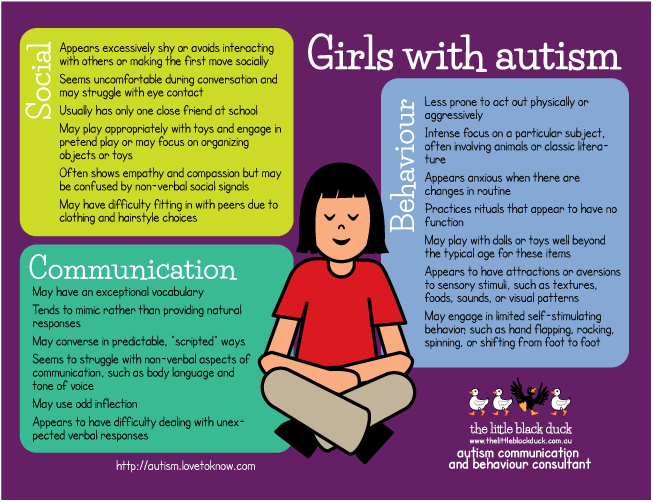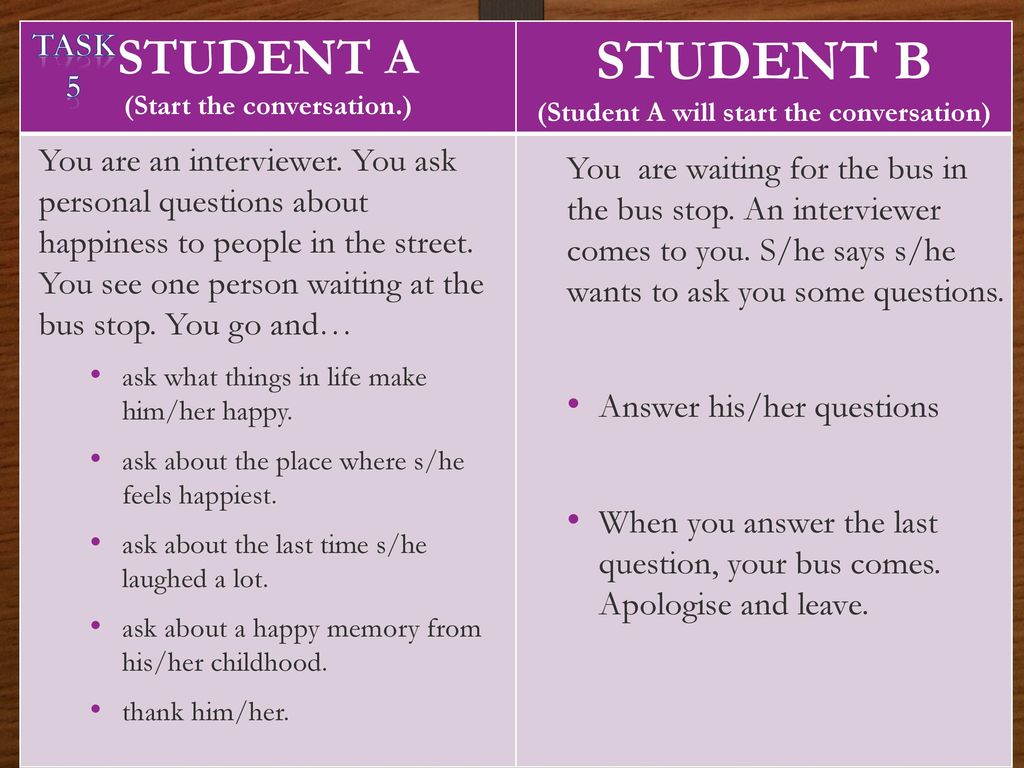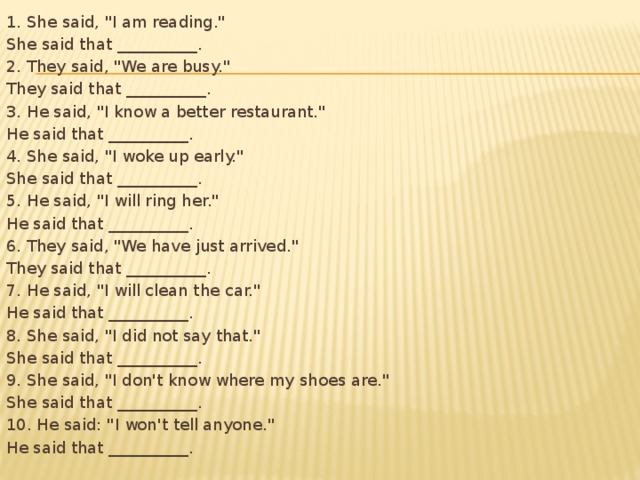Introverts need space
What's Going on When the Introvert You're Dating Says 'I Need Space'?
Love and Dating Trending
ByJenn Granneman
I’m mindlessly scrolling through Facebook when a desperate message pops up. It’s from one of my most extroverted friends, who just started dating an introvert. When I talked to him a week ago, everything was going great.
“She says she needs time alone,” my friend writes. “It’s been a few days, and I haven’t heard from her. I should text her, right?”
“NO,” I dash off. “If she said she needs space, give her space!”
He didn’t like that answer.
Ouch, This Hurts
My friend is not the first person to ask me a question like this. As an author who writes about introversion, I get a few emails a month from panicked extroverts who are wondering why their introvert went dark on them. The story is always the same: An introvert and extrovert start dating, there’s tons of initial contact, everything is going wonderfully, then suddenly the introvert backs off.
What gives?
First let me say that if this is happening to you, I completely understand why you’re panicking. I’ve found myself in this situation a few times, and it’s always ball-of-hot-lava-in-your-stomach scary. You wonder if you said or did something wrong. You really, really like this person, and you’re worried that this beautiful connection is slipping away.
The worst part is you feel hurt and rejected. If your introvert likes you, they’d want to spend time with you, right?
Yes… and at the same time… no.
Introverts Can’t Function Without Alone Time
It’s hard not to take it personally when someone says they want to be left alone — especially when you’ve been enjoying their company so much. But this is normal for us quiet ones. Introverts’ brains are actually wired a little differently than extroverts’, and as a result, we have less of a battery for “people time.”
Whereas a night out on the town might be fun and exciting for you, it comes at a price for your introvert.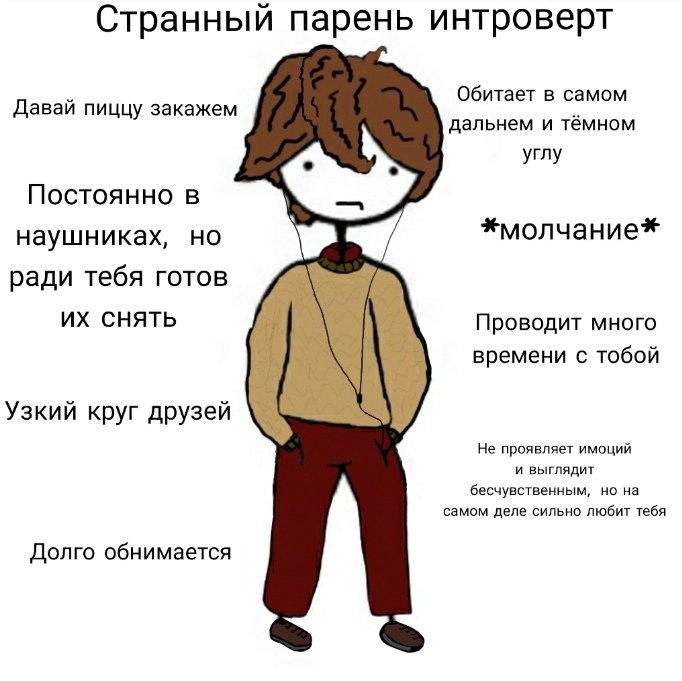 Because of the way the introvert’s brain processes stimulation, we’re more sensitive to noise and activity. Although we may have fun hanging out with you, there’s another part of us that gets tired. This is all part of what it means to be an introvert.
Because of the way the introvert’s brain processes stimulation, we’re more sensitive to noise and activity. Although we may have fun hanging out with you, there’s another part of us that gets tired. This is all part of what it means to be an introvert.
For some introverts, too much “people time” may even result in feeling physically unwell. This has been dubbed the “introvert hangover.” Some introverts report getting headaches, feeling dizzy, and feeling physically fatigued after lots of socializing.
When we ask for alone time, it may feel like a slap in the face. Please try not to take it personally. We’re trying to manage some very real symptoms we’re feeling.
What to Do
Like my friend, your first reaction may be to bombard your introvert with texts or calls until you get through to them. Do not, I repeat, DO NOT do this! When you really hear what they’re asking for and abide by it — even if it doesn’t make sense to you — you show respect. Your introvert may even be testing the waters, seeing how you deal with their need for alone time.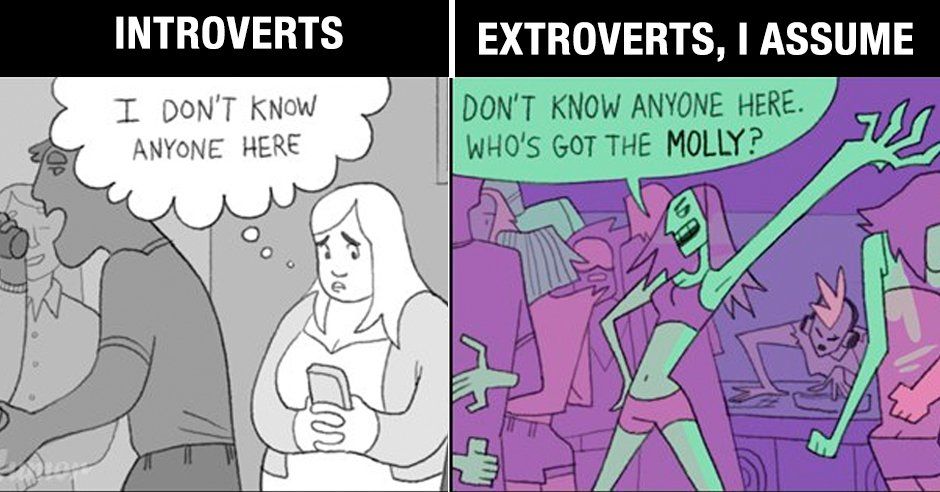 For them, this need will never go away, so they are looking for a partner who deals with it well.
For them, this need will never go away, so they are looking for a partner who deals with it well.
Here’s what I’d recommend:
- When your introvert asks for alone time, tell them that you completely understand. Agree that you’ll give them space by not texting, calling, or trying to set up plans for a little while.
- Here’s the most important part: Ask them to initiate contact when they’re ready. That way, you won’t be left wondering if or when you should text.
- Back off!
If you haven’t made some sort of arrangement with your introvert about them initiating contact, and it’s been a long time since you’ve heard from them (like a week or two), it’s okay to send a “check in” text. Something casual like, “Hey! Just wanted to check in and see how you’re doing.” Try to keep it pressure-free.
Is Our Relationship Ending?
I’m going to be completely honest. If your introvert’s request for alone time keeps stretching on and on, with no real end in sight, it may be sign that the relationship is in trouble. That’s what happened to my extroverted friend who I mentioned at the beginning of this article. The introvert he was dating broke up with him after requesting more and more space.
That’s what happened to my extroverted friend who I mentioned at the beginning of this article. The introvert he was dating broke up with him after requesting more and more space.
At this point, you may be tempted to say, “Aha! See! I knew the ‘I need space’ line was just an excuse. The introvert is about to ghost me.”
I can’t speak for all introverts, but I’d argue that for most of us quiet ones, it’s not an excuse. It may, however, be the first inkling in an introvert’s mind that something isn’t quite right with the relationship. Introverts need time alone to process. Pulling away for a bit means introverts can really sit with their feelings and figure out how to proceed.
If an introvert uses alone time as an excuse, then cuts off all communication with you, that’s an immature move — and you deserve better.
But most of the time, this isn’t the case. When my introverted boyfriend and I first started dating, we talked to each other on the phone every day, for hours, for weeks.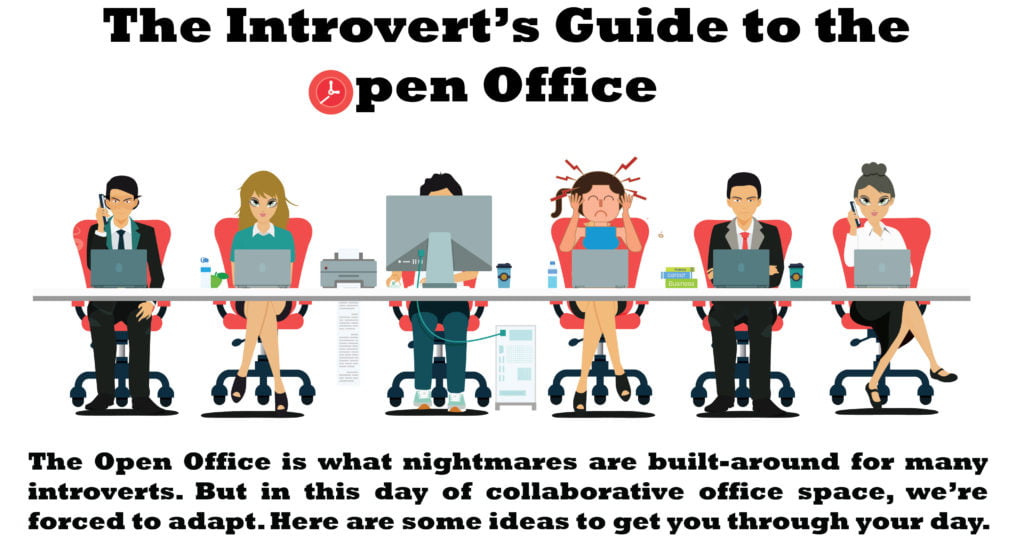 (He lived in Mexico at the time.) Then, we both felt the social exhaustion set in (not to mention we were both falling behind with our work and personal projects). We agreed to take a few nights off.
(He lived in Mexico at the time.) Then, we both felt the social exhaustion set in (not to mention we were both falling behind with our work and personal projects). We agreed to take a few nights off.
After that alone time, we were right back at it, talking on the phone. Today, we live together and are happily in a committed relationship.
If your introvert jumps right back in after a bit of alone time, I’d wager that they are into you — they just needed some time to recharge.
The most important thing is to show your introvert that you respect their needs. If you do, they’ll return to you, over and over, and deeply cherish having you in their life.
Did you enjoy this article? Sign up for our newsletters to get more stories like this.
Read this: 9 Secrets of Dating an Introvert
Learn more: The Secret Lives of Introverts: Inside Our Hidden World, by Jenn Granneman
This article may contain affiliate links.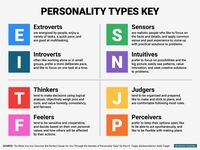 We only recommend products we truly believe in.
We only recommend products we truly believe in.
Jenn Granneman
I'm the founder of Introvert, Dear and the co-founder of Sensitive Refuge. An educator and a journalist, I'm the co-author of SENSITIVE and the author of THE SECRET LIVES OF INTROVERTS. I have been featured in the NY Times, the Washington Post, the BBC, Oprah Daily, Buzzfeed, Glamour, HuffPost, and more, as well as numerous podcasts. I also hosted my own podcast, called The Introvert, Dear Podcast. Since embracing my own introversion and sensitivity, I read too many self-help books and live a pleasantly boring life in St. Paul, Minnesota.
The Scientific Answer That Explains Why Introverts Need…
As an introvert, I need plenty of quiet downtime. If I spend too much time socializing—or am just “out and about” too much in noisy stores or coffee shops—I don’t feel like myself. I get mentally drained and even physically tired. I get cranky and short with people.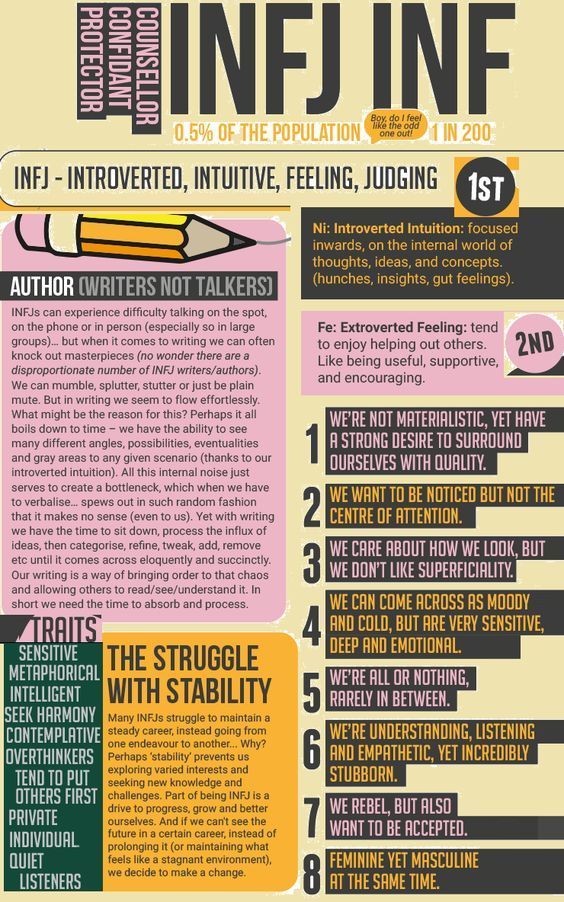 Every little annoyance—like a crying baby in public or having to repeat myself to my significant other—seems magnified. I fantasize about disappearing off the face of the planet for a day or two to recharge my energy.
Every little annoyance—like a crying baby in public or having to repeat myself to my significant other—seems magnified. I fantasize about disappearing off the face of the planet for a day or two to recharge my energy.
Recent research shows that extroverts get worn out by socializing, too. So it’s not just us introverts who need to rest after chatting and meeting new people. Nevertheless, there are some real differences between introverts and extroverts. On average, introverts really do prefer solitude more than extroverts, and extroverts are more driven to engage in social interactions that elevate their social attention and status (more about this later).
So, scientifically speaking, why do introverts need more solitude than extroverts? The answer is found in the wiring of our brains.
Introverts Respond Differently to Rewards
One of the reasons introverts enjoy alone time has to do with how introverts respond to rewards. Rewards are things like money, sex, social status, social affiliation, and even food.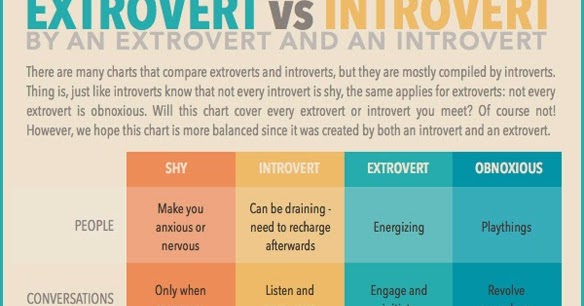 When you get promoted at work or convince an attractive stranger to give you his or her phone number, you’re gaining a reward.
When you get promoted at work or convince an attractive stranger to give you his or her phone number, you’re gaining a reward.
Of course, introverts care about things like earning money, eating, and having relationships, too. But researchers hypothesize that introverts respond differently than extroverts to rewards. When compared to extroverts, introverts are less engaged, motivated, and energized by the possibilities for rewards around them. So, they talk less, are less driven, and experience less enthusiasm. In fact, they may find levels of stimulation that are rewarding and energizing for extroverts to be tiring or annoying.
What makes introverts less motivated by rewards? It was to do with a chemical found in the brain called dopamine. Dopamine helps control the brain’s pleasure and reward centers. It enables us to notice rewards and take action to move toward them, and it reduces the “cost of effort,” meaning, it increases how much a person is willing to work for the possible reward.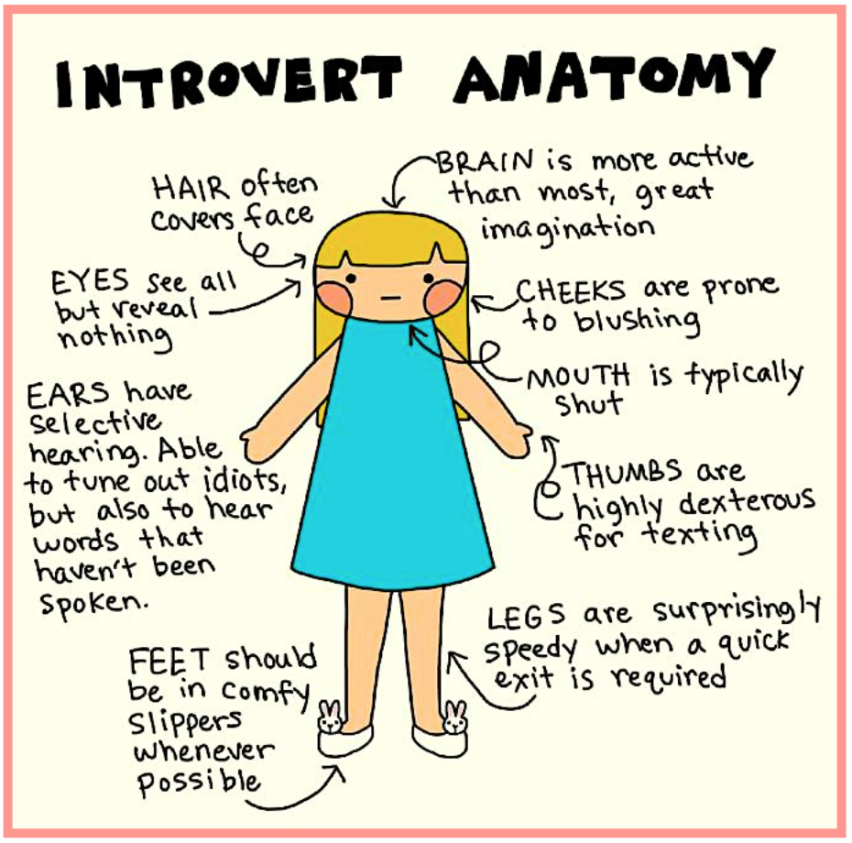
According to Colin DeYoung, a psychology professor at the University of Minnesota who recently published a paper on introversion, extroverts appear to have a more active dopamine reward system than introverts. This means that extroverts’ brains become more active at the sight of a possible reward, and dopamine energizes them to pursue that reward. Introverts’ brains just don’t get as active as extroverts’ at the expectation of a reward.
Why Introverts Enjoy Alone Time
Thinking about introversion in terms of rewards makes sense. Because introverts care less about obtaining rewards, we’re less motivated to do things that extroverts find immediately rewarding, such as socializing. DeYoung told me: “Introverts are indeed often drained by socializing, but that’s partly because the effort required may not seem worth it because the rewards from socializing seem less to them. Extroverts get drained by socializing too, but they are more motivated to engage in it anyway, and it probably takes more socializing before they start to feel drained.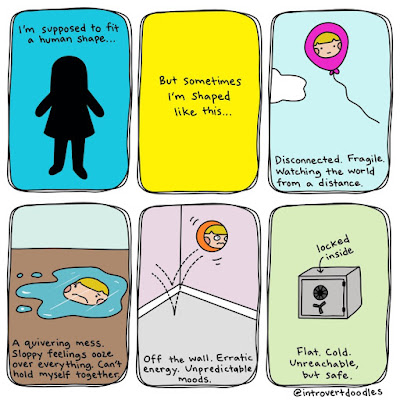 Anything that involves expenditure of energy will be draining eventually.”
Anything that involves expenditure of energy will be draining eventually.”
To fully understand what DeYoung is saying, imagine two friends—one an extrovert, the other an introvert—at a house party on a Saturday night. They’re crammed in a small room with 30 other people. Loud music blasts from huge speakers, and a few people are playing video games on a big screen TV. Everyone is practically shouting to make their voice heard over the din. There are a dozen conversations going on at once, and a dozen things to pay attention to.
For the extrovert, this “level of stimulation” might be just right. He sees possibilities for reward everywhere—an attractive stranger across the room, potential new friends, and people who will give him the social attention he craves. He feels energized and excited to be at the party. So motivated, in fact, that he stays late into the night. He’s worn out the next day and needs some downtime to recover, but to him, the energy spent was well worth it.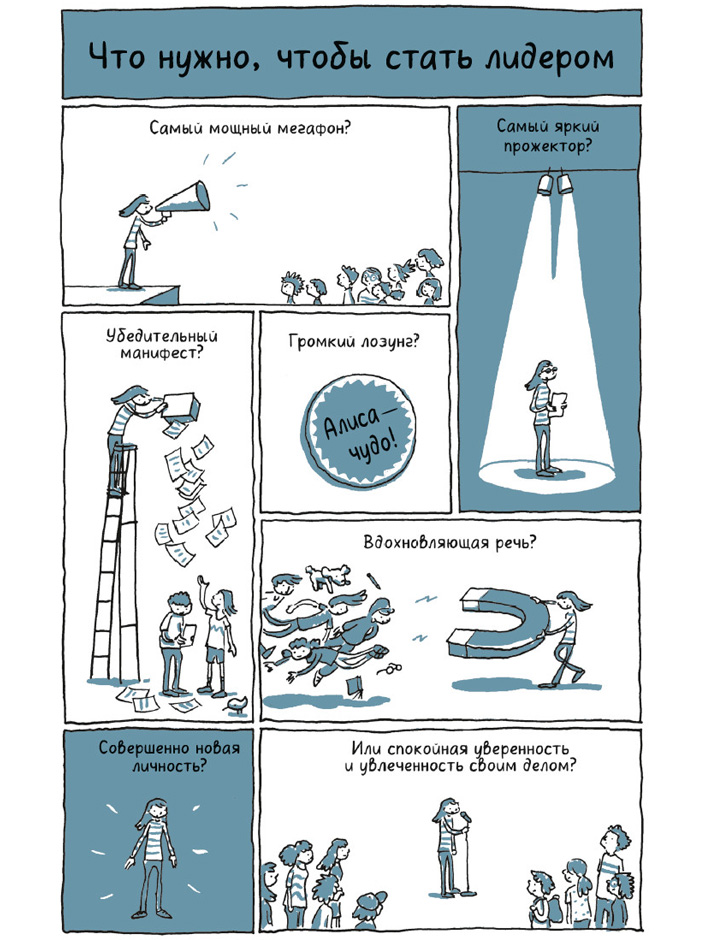
The introvert, on the other hand, finds this environment tiring and punishing. It’s too loud, there are too many things to pay attention to, and all the people in the room create a dizzying buzz of activity. The introvert simply isn’t interested (to the same degree as the extrovert) in the possibility of social rewards around him. The introvert makes up an excuse and gets out of there. He heads for home, where he watches a movie with his roommate before going into his bedroom to read alone. In his own apartment, alone or with just one other person, the level of stimulation feels just right.
Extroverts Are More Stimulated by People
Finally, a recent study found that extroverts are more stimulated by seeing people but introverts paid more attention to inanimate objects. The researchers studied a group of different people and recorded the electrical activity in their brains through an EEG. As participants were shown pictures of both objects and people, the researchers evaluated their brains’ P300 activity.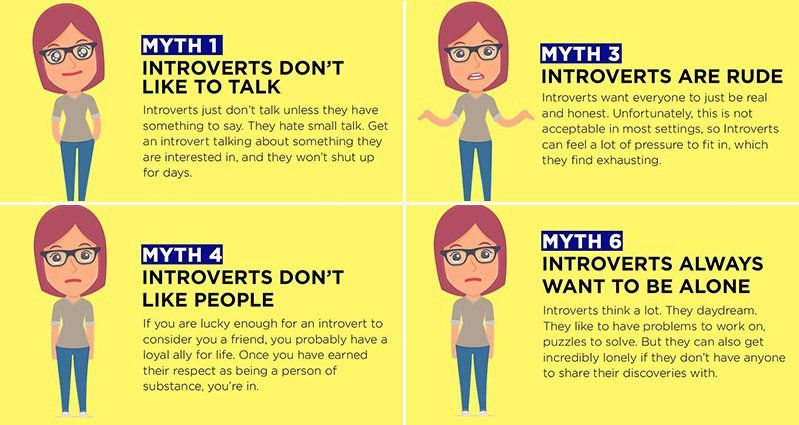 This activity happens when a person experiences a sudden change in their environment; it gets its name because the activity happens within 300 milliseconds.
This activity happens when a person experiences a sudden change in their environment; it gets its name because the activity happens within 300 milliseconds.
Interestingly, researchers found that extroverts who saw pictures of flowers and faces achieved the P300 response from viewing the images of faces, while the introverts only had the P300 response from pictures of flowers. This doesn’t mean that introverts dislike people, but what it could mean is extroverts place more significance on people than introverts do.
Are You Getting Enough Alone Time?
As an introvert, it can be hard to get enough alone time. You may feel guilty when you decline a social invitation or tell your significant other you want a night to yourself. However, not getting enough alone time can affect you physically and emotionally. According to Dr. Marti Olsen Laney in her book The Introvert Advantage: How Quiet People Can Thrive in an Extrovert World, you may not be getting enough alone time if you regularly experience some of these symptoms:
- Trouble sleeping or eating
- Frequent colds, headaches, back pains, or allergies
- Feeling anxious, agitated, irritable, and “snappish”
- Unable to think, concentrate, or make decisions
- Confused and discombobulated, as if you are dashing from thing to thing in a blur
- Trapped and wondering what is the meaning of life
- Drained, tired, and put-upon
- Disconnected from yourself
What should you do? Make it a priority to include downtime in your day, even if it’s only 30 minutes of relaxing in your bedroom. Your introverted brain demands it!
More From Introvert, Dear
- 12 Things a Highly Sensitive Person Needs
- The Science Behind Why Introverts Struggle to Speak
- Introverts’ and Extroverts’ Brains Really Are Different, According to Science
Jenn Granneman is the founder of Introvert, Dear, the popular community for introverts and highly sensitive people. Jenn is an introvert, a highly sensitive person, and an INFJ personality type. She started Introvert, Dear to help other introverts not feel so alone or weird. Look for her first book, The Secret Lives of Introverts: Inside Our Hidden World, in spring 2017. To get updates and see the occasional cat picture, you can "friend" her on Facebook.
This article was originally published on Introvert, Dear. It has been republished here with permission.
Photo of person thinking courtesy of Hero Images/Getty Images.
how to succeed without becoming an extrovert - Personal experience on vc.
579 views
Contrary to the opinion of the majority, an introvert is not always a closed, unsociable person, immersed in his thoughts, who eschews society. Such a person communicates with pleasure only with close people and tries not to waste internal resources on interaction with the whole society. And this is absolutely normal!
To succeed in life, an introvert does not need to become an extrovert, as some people think. Yes, many personal growth coaches will recommend that you get out of your comfort zone, start actively interacting with society and making contacts with everyone. But will it always lead to success? nine0003
Many people forget that success is achieved only if you feel you are in the right place. In an uncomfortable environment, you cannot be happy, so no matter what heights you reach, you will not gain harmony and peace. That is why you should not change to an extroverted wave, you should try to work with those qualities that are characteristic of you.
In this article, we'll give you 6 tips from psychologists and coaches to help you succeed as an introvert. nine0003
- Accept yourself
Constantly wearing an extrovert mask will be tiring for you, and you will not be able to change your physiology. You don't have to! Many writers, screenwriters, businessmen around the world are precisely introverts. They do not hide it and do not try to remake themselves, which is why they succeed.
Therefore, accept yourself, all your qualities, character and temperament, and only then start moving in the chosen direction. For more confidence in the success of introverts, read foreign studies by psychologists, such as Adam Grant. nine0003
A psychologist has conducted a study that refutes the prevailing opinion that the best leader is necessarily an extrovert. Introverted leaders achieve great success by listening to their employees, giving them more freedom to implement ideas.
- Highlight strengths
Introverts tend to think first and then speak. What is not your strong point? And, unlike extroverts, you can see details and nuances and notice "invisible" events. That is why introverts are better than extroverts at predicting events and identifying possible risks. nine0003
In addition, introverted people put their energy into one thing and try to see it through to the end. Extroverts, on the contrary, quickly lose interest in an unsolved problem, switching to another one. That is why your value is in concentration!
You don't have to be the center of attention when you're moving up the corporate ladder. The main thing is to achieve your goals, with which introverts should not have problems. The advantage of an introvert is also a quick learner, so train hard and pump your best qualities. nine0003
- Find your calling
"Soft power is quiet tenacity."
Susan Kane, author of
“Introverts. How to use the features of your character”
Answer the question “Who do you want to be?” you need not a specific profession, but what lies at its basis. In addition, read the stories of famous introverts. What were they doing? Keanu Reeves, for example, became a successful actor, Elon Musk founded three SpaceX, PayPal and Tesla projects, and Barack Obama was the President of the United States! Many writers and poets also shunned society, plunging into their inner world. Maybe that's why they became geniuses of thought? nine0003
When you realize that there are many niches open to introverts where you can fulfill yourself, think about what type of work you like. Imagine what your ideal job means to you. What do you do on it, what tasks do you solve, what is the situation around you, etc. By answering these questions, you can already go to specific professions.
- Create a comfortable working environment
Having chosen your professional activity, you must equip your workspace. Introverts like to work in silence so that nothing distracts them from their tasks. Therefore, they often work on freelance, organizing the workspace at home in comfort and coziness. nine0003
If you work in an office, it will be more difficult to create comfortable conditions there. Especially if you are not sitting in a separate office from other people. Try to choose a place not in the center of the room, where the eyes of work colleagues are fixed, but to move to the very depths of the room. Introverts don't like to be the center of attention, but the position of the "observer" suits them. Therefore, take such a place in the office, because this is the only way you will achieve high productivity.
- Plan your social life
Without a social life, you will not acquire new contacts that may be useful to you in the future. Therefore, make a schedule for your “going out”. Choose the activities that you like. For example, you like the lamp atmosphere in an anti-cafe. So visit it, you should not go to a restaurant where you will feel uncomfortable.
Another example. You love poetry. So, attend a poetry evening, and do not go to a pop concert or stand-up show. Don't try to rebuild yourself! Match yourself and your passion and do not try to put on the mask of an extrovert again. nine0003
- Choose a job with a friendly team
And finally, the team! Extroverts like to be in an atmosphere of competition, but introverts, on the contrary, love a friendly atmosphere where they will always be supported. The competition will tire you out, which will affect your productivity. Therefore, choose a team with a focus on friendliness, and not on constant rivalry.
How to understand this at a glance? No way, only if by occupation. If you are offered a job where wages depend on the number of sales or completed projects, then most likely there is competition for leadership within the team. nine0003
So, the main conclusion that suggests itself after the article, be yourself! By developing your strengths and building comfortable conditions for yourself, you will achieve no less than an extrovert, and in certain situations even more!
Write in the comments what life hacks do you use for introverts? What difficulties do you face in your work?
Energy sources for introverts.
You must teach your child not only how to properly communicate your needs to people, but also how to replenish energy stores effectively. As Marty Laney writes in his book The Hidden Gifts of the Introverted Child: Helping Your Child Thrive in an Extroverted World: vitality and peace of mind. Excessive external stimulation - vigorous activity, noise, communication - exhaust him. Although each person recovers differently, there are a number of common sources of energy for introverts with character. nine0003
1. LONELY. Communication with people forces the introvert to act outside his inner world, which can be tiring for him. The outside world sucks the energy out of him. If your child turns into a grumpy curmudgeon after a day at school, he may just be an introvert who needs to be alone.
“I work as a day nanny,” Christine says. “When my daughter comes home from school, she immediately starts lashing out at other children. She literally begs me to send her to her room to "sit and think about her behavior"! nine0003
Introverts need personal time. Introverted children often do not know how to tactfully leave the company and retire, because in our society they are taught only to be sociable and play "along with everyone." They do not understand their need for solitude and as a result become irritable, they believe that others specifically get them. And until you send them to your room to “sit and think”, they will bully other children. Sometimes they can suddenly stop playing with friends and blurt out: “I'm sick of you! Go home!" The unrecognized need for personal time is one of the main causes of psychological breakdowns in children with a difficult character, clashes with siblings and bad behavior. nine0003
If your child is an introvert, you should help him understand that he needs periods of solitude to recharge his energy. When your son or daughter gets irritated while playing with mates, say, "I think your body is telling you that you need to be alone for a while. " Teach him to say tactfully, “We played great. Play without me for now, and I'll join you later." Teach him to find an acceptable excuse, such as going to the kitchen for water or going to the bathroom. You can stay there for a few minutes to get the necessary break. In this way, you will help your child recognize moments when his energy is running out, and, without offending anyone, retire to restore his strength. nine0003
Do not let your child turn into a grumpy curmudgeon. To do this, include in your daily routine a "recovery break" after school: feed your child lunch, and then let him be alone in his room so that he can read a book, take a nap, listen to music or play games before moving on to other activities. Time alone with himself will allow him to replenish his energy reserves and enjoy socializing with people in the afternoon.
nine0002 After Thanksgiving, a mother in my class told this story: “Tara went to her room to play. My mother looked after her and said: "What a good idea! Let's all go to our rooms and get some rest from each other!" Introverted young children do not like to be "alone", but prefer to find a quiet place away from the crowd and sit with mom, dad or another adult they like. They need a break, but they prefer to bring "reliable protection" with them. nine0003
Don't pressure introverts to stay "in the company." A few minutes of solitude can act like a breath of fresh air for an introvert, and if you deprive him of such an opportunity, he may well turn from a positive and sociable merry fellow into an evil monster. An introvert's best friend is himself. He enjoys his own company and never gets bored alone with himself. It's hard for extroverts to understand.
In the same way that you consider your child's nutritional needs, you must also consider his energy recovery needs. The next time your friends invite you to go to the zoo and then immediately organize a picnic, stop and think about your little introvert. Will he have enough energy for a whole day of intensive communication? Perhaps you should take a break between the zoo and the picnic and let the child rest for a while? Or, during a visit to the zoo, retire together to a quiet corner and calmly watch the snow monkeys? nine0003
If it's not possible to take such a break, maybe you should go to the zoo, but skip the picnic. It is better to enjoy one event than to try to do everything at once and end the day with a huge brawl. Remember that your little introvert loves to communicate with people, it's just that communication greatly depletes his energy reserves, which he can only restore in solitude and peace. When making plans, consider this feature of the psyche of your child and do not let his fuel tank empty. nine0003
2. PERSONAL SPACE. Personal space is vital for introverts. Recently, the mother of a four-year-old boy with a difficult character called me. She said that her son has a problem: he constantly fights with children when they are lined up. I asked her to ask him why he does it.
- He said he hit the boy who was standing next to him because he was not supposed to stand in this place, she said. nine0003
“I understand why he did it,” I replied.
- Do you understand?! she asked dazedly.
- Introverts need personal space. The need to share space with other people takes a lot of energy from them. When they get tired, they lose control of themselves. Explain to your son that he needs personal space. He can stand at the end of the line, where he will feel better. Or learn to say, "Please move back" or "I need a little more space." When he realizes that it is difficult for him to let other people into his personal space, and learns to restore his energy reserves, the problems will disappear. nine0003
The need for personal physical space manifests itself in many different ways. For example, a child may demand a separate seat in the car, otherwise he begins to grumble that they touch him with his feet, breathe in his face or shout in his ear. A two-year-old may throw a temper tantrum when you take off his hat or sweater because you are unceremoniously invading his personal space. A seven-year-old child can stretch a rolling pin across the couch to mark their territory. nine0003
Some children cannot share their room with siblings, others hang a “No Trespassing” sign on the door, and others refuse to sit at the same desk with anyone at school. Even if the child does this unconsciously, with these actions and reactions, he clearly shows others how important personal space is for his good mental well-being.
It is difficult for extroverts to understand this need. They like to be close to people and do not think about their own and other people's personal space. However, they must understand that when they sit or get too close to introverts, touch them if they do not want it, go into their room uninvited, introverts can take it very painfully and lose their temper. Introverts don't demand personal space because they're selfish, antisocial, or arrogant. Just the lack of such space drains their energy. You must explain to your little introvert this feature of his and teach him at an early age socially acceptable ways to provide himself with the space that is vital for him to restore energy. nine0003
When two-year-old Seth started attending kindergarten, every day his first minutes in the group were always accompanied by a scandal. Other children happily rushed to meet him, but Seth froze in place and began to yell. This little introvert panicked at such a massive intrusion into his personal space, especially after a sudden change of scenery. Fortunately, the caregivers understood what was happening to him. They offered hoops to all the children so they could mark their “own territory” with them. None of the children took the hoop except Seth. nine0003
Every morning, the father took Seth to the kindergarten, helped him undress, and then together they found a place where Seth sat quietly inside his hoop. There he could play with his favorite toy for several minutes and tune in to communication. The teachers explained to the children that Seth just needed some time and space to get used to the new band, after which he would be ready to play along with them. The hoop was a specific symbol of this need. Other kids saw the hoop and waited patiently. nine0003
The caregivers also told Seth to alert them when he was ready to join the other children. As a rule, ten minutes was enough for the boy, after which he allowed the teacher to help him put the hoop in place and lead him to the group. This went on for three weeks. Seth realized that he always has the opportunity to provide himself with personal space when necessary, and began to feel much more comfortable. Now he enters the door, watches for a couple of minutes and starts playing with the children. Understanding and respecting his need for personal space allowed Seth to successfully adapt to the new environment. nine0003
3. TIME FOR THINKING. Introverts prefer to think first and then talk. As Marty Laney writes, they “use longer processing pathways in the brain, so they take longer to process information. However, this processing can be more complex and deep and take into account a much wider range of relevant information.”
Extroverts prefer to think out loud and discuss everything immediately, which can become a cause of contention between them and introverts. For example, an extrovert may insist on immediately discussing a problem, while an introvert will avoid it in every possible way, trying to get time to think. That's how they are, introverts: they are never ready to share their thoughts until they carefully consider everything. The frustrated extrovert tries with a vengeance to convince the introvert to discuss the problem, which only increases resistance from the latter and depletes his energy reserves. There is only one way out: you need to give the introvert time to think everything over thoroughly, after which he will be ready for a conversation. Of course, this is not an easy task for extroverts who think out loud and want to talk right now! nine0003
I encountered a perfect example of this mismatch while writing this chapter. I went to my husband's room and asked him to name the three most important things from an introvert's point of view. I stood and waited for an answer. He looked at me and laughed. “I understand that you want an answer immediately, as always,” he said. “But you know, I need to think.” (By the way, I'm still waiting for an answer. My only consolation is the thought that this answer, when I get it, will be very thoughtful and wise.)
Extroverts should understand that an introvert is slow to answer not because he has no thoughts, that he did not hear your question, or simply ignored it. Let your little introvert think about the question, consider his thoughts, and the depth of his answer will amaze you. Thinking energizes him.
If it annoys you that your child doesn't answer your questions right away, change your approach, as Megan did. “When I realized that my son is an introvert and needs time to think, I changed tactics,” she says. “Now I ask him a question and add 'Think about it. I'll come by in a few minutes to see what you've decided.' Then I leave and go about my business, and when I return, he already has a ready answer. So, giving your child time to think will save you unnecessary disagreements and make life much easier for both of you. nine0003
Bedtime is a favorite time for introverts to start a conversation. It may seem that they are deliberately playing for time, but this is not so. Introverts just need to digest the impressions received during the day, and by the evening the moment comes when they are ready to share them. Start getting ready for bed a little earlier to leave at least 10-15 minutes for “talking”. Then you will not have to interrupt the conversation because it is already too late, and you will have the opportunity to finally listen to your open-minded child. nine0003
4. NO DISTRACTS DURING EXERCISES. If your child doesn't come out of the room to greet you when you get home, he's most likely just an introvert conserving his energy reserves. If an introvert is enthusiastically engaged in something, he does not like to break away, because any interference and interruptions take away his energy. If you want to teach your little introvert polite behavior, ask him to come out to say hello to you, and then go back to his business. Do not distract him with long conversations. By doing so, you will be respectful of his need to conserve energy. nine0003
Teaching your introverted child to restore his energy reserves is an important step towards his good behavior. A child who knows when and how to replenish his energy reserves is able to use his strengths and control his weaknesses. The next time your little introvert starts misbehaving, mentally assess his energy level. Did he have to communicate a lot? Sharing space with other people for too long? Answer questions quickly? Or did he have to constantly be distracted when he was playing? If you answered “yes” to any of these questions, give your child the opportunity to retire and be in peace and quiet for a while so that the sun comes out again from behind the gloomy clouds. Eventually your child will learn to recognize their condition and take care of themselves. nine0003
I met Libby four years after she completed my Parenting of Troubled Children course.
